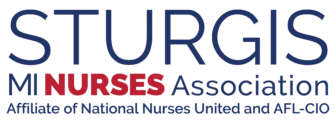Comfort Without a Prescription: Enhancing Patient Care Through Non-Pharmacologic Pain Relief
1.75 contact hours – November 7, 2025 – November 30, 2027 - fulfills state requirement for pain and pain symptom management
The current opioid epidemic has brought to light the need for patient education using non-pharmacological interventions for pain management. Evidence from literature indicates that some patients developed a dependency on opioids as a result of having been prescribed opioids for pain management after having surgery or traumatic injury. Other patients have resorted to undermanaging their acute pain for fear of developing a dependency on opioids long term which is contributing to other health problems as a result of under management of their pain. This professional development activity will provide strategies for implementing non-pharmacological interventions and address the importance of educating patients about the importance of managing their pain without the risk of developing dependence on opioids. Fulfills state requirement for pain and pain symptom management.
Learning Activity Objectives:
- Describe the current challenges and limitations of pharmacologic pain management, including risks associated with opioid use.
- Identify at least five evidence-based non-pharmacologic pain management strategies that can be used in clinical nursing practice.
- Evaluate the effectiveness of selected non-drug interventions for different types of pain (e.g., acute, chronic, procedural).
- Demonstrate how to integrate non-pharmacologic strategies into patient care plans, including education and documentation considerations.
- Discuss the nurse’s role as a patient advocate and educator in promoting comfort and reducing reliance on prescription pain medications.
Successful completion of learning activity:
Participants who view this presentation in its entirety, complete the evaluation form, and pass the post-test with 80% or higher, will receive an electronic certificate via email awarding 1.75 contact hours of continuing education.
The Michigan Nurses Association (MNA) is accredited as a provider of nursing continuing professional development by the American Nurses Credentialing Center’s Commission on Accreditation.
Disclaimer
Presentation
POST TEST DIRECTIONS
COST: This CE is FREE for MNA members and $20 for non-members
POST-TEST: Complete the post-test & evaluation response form ONLINE by clicking here.
AWARDING OF CE
- Participants who achieve a minimum passing score of 80% will receive a certificate awarding 1.75 contact hours.
- Participants who do not achieve a passing score will have the option to gain success with the material by repeating the material and test at no additional cost.
Resources
- Centers for Disease Control and Prevention. (2025, June 10). Understanding the opioid overdose epidemic. https://www.cdc.gov/overdose-prevention/about/understanding-the-opioid-overdose-epidemic.html
- Centers for Disease Control and Prevention, National Center for Health Statistics. (2024, November). Chronic pain and high-impact chronic pain in U.S. adults, 2023 (NCHS Data Brief No. 518). https://www.cdc.gov/nchs/products/databriefs/db518.htm
- Wang, Y., et al. (2025). Non-pharmacological interventions for pain management: An update. Pediatric Nursing, 51(4), 189–198. https://pmc.ncbi.nlm.nih.gov/articles/PMC11866493/
- Zgierska, A. E., et al. (2025). Mindfulness-based therapy vs cognitive behavioral therapy for opioid-treated chronic low back pain (STAMP): Randomized clinical trial. JAMA Network Open, 8(5), e251066. https://jamanetwork.com/journals/jamanetworkopen/fullarticle/2832235

